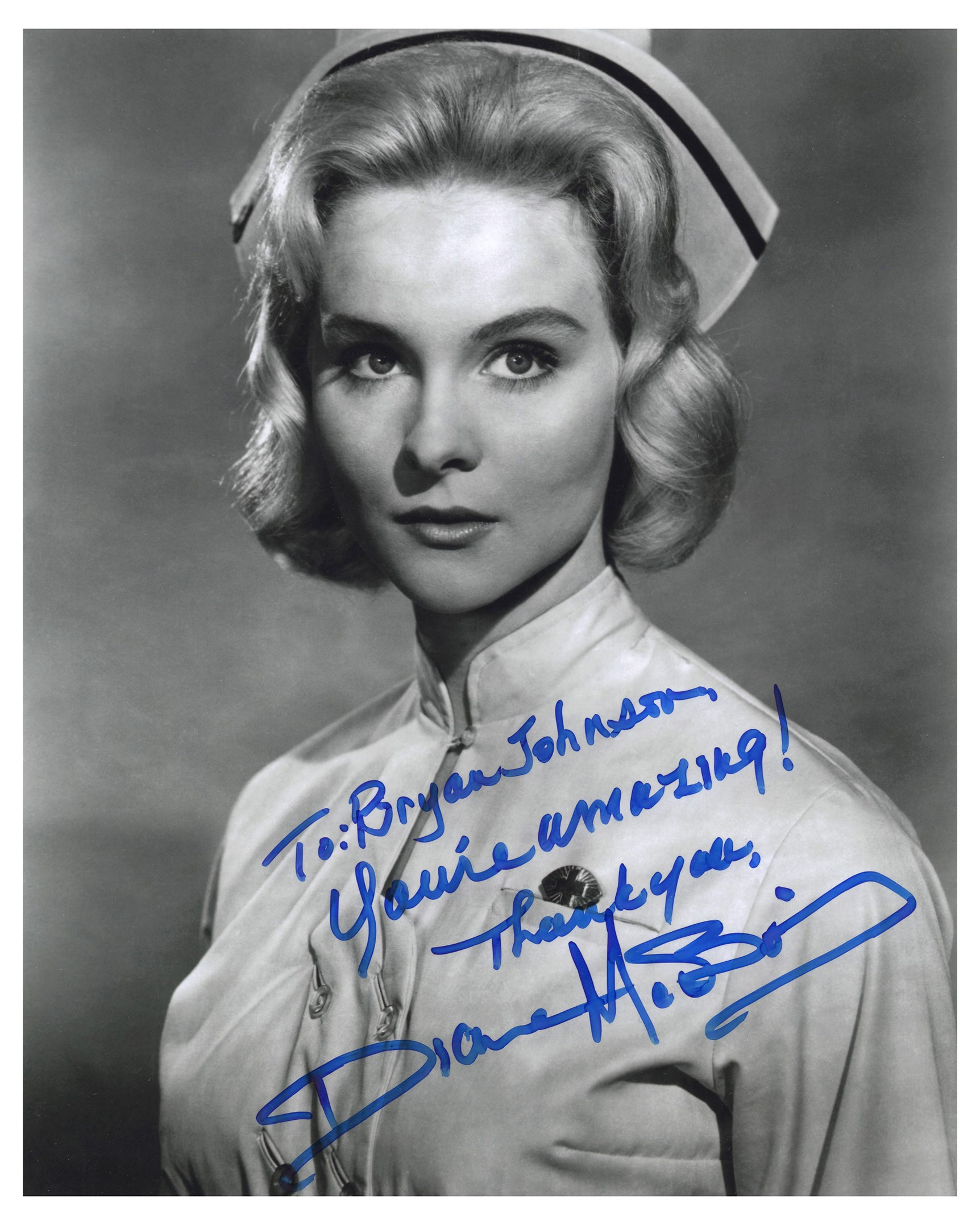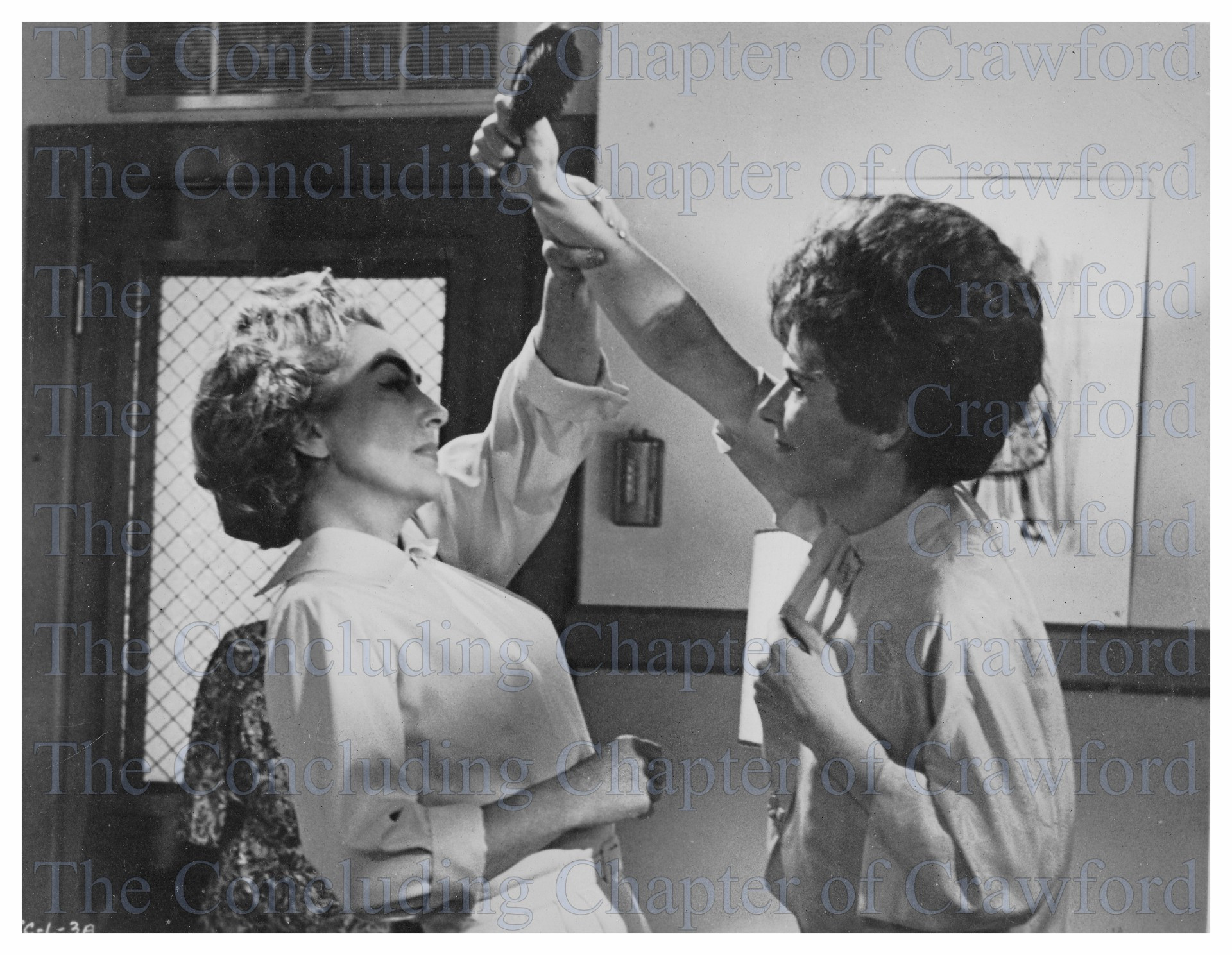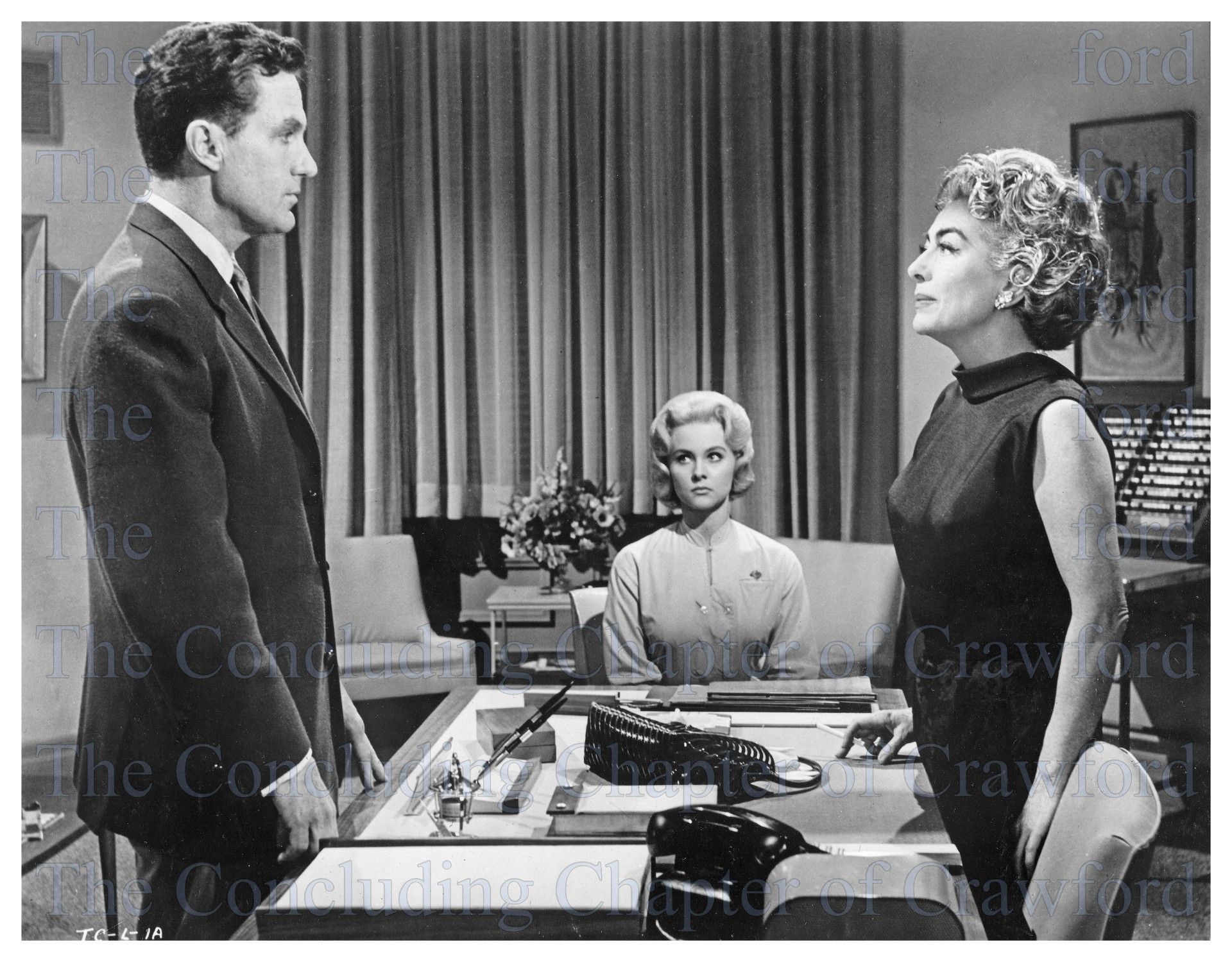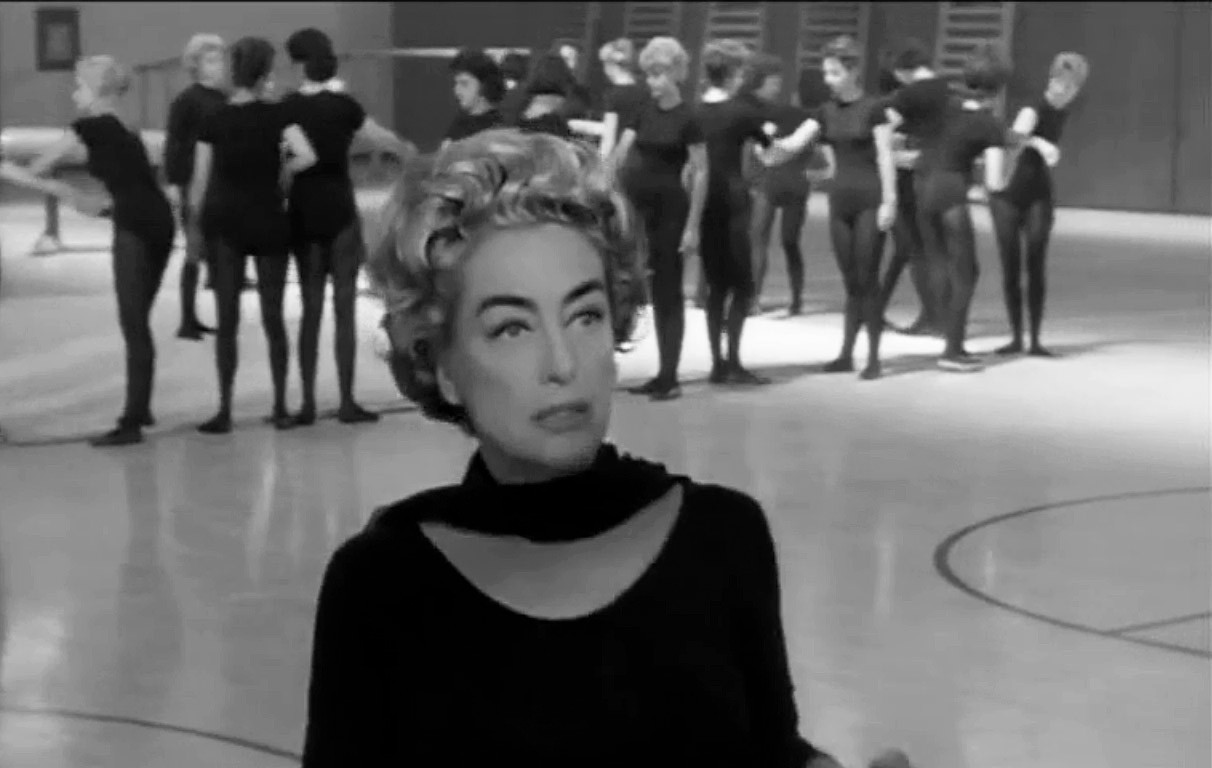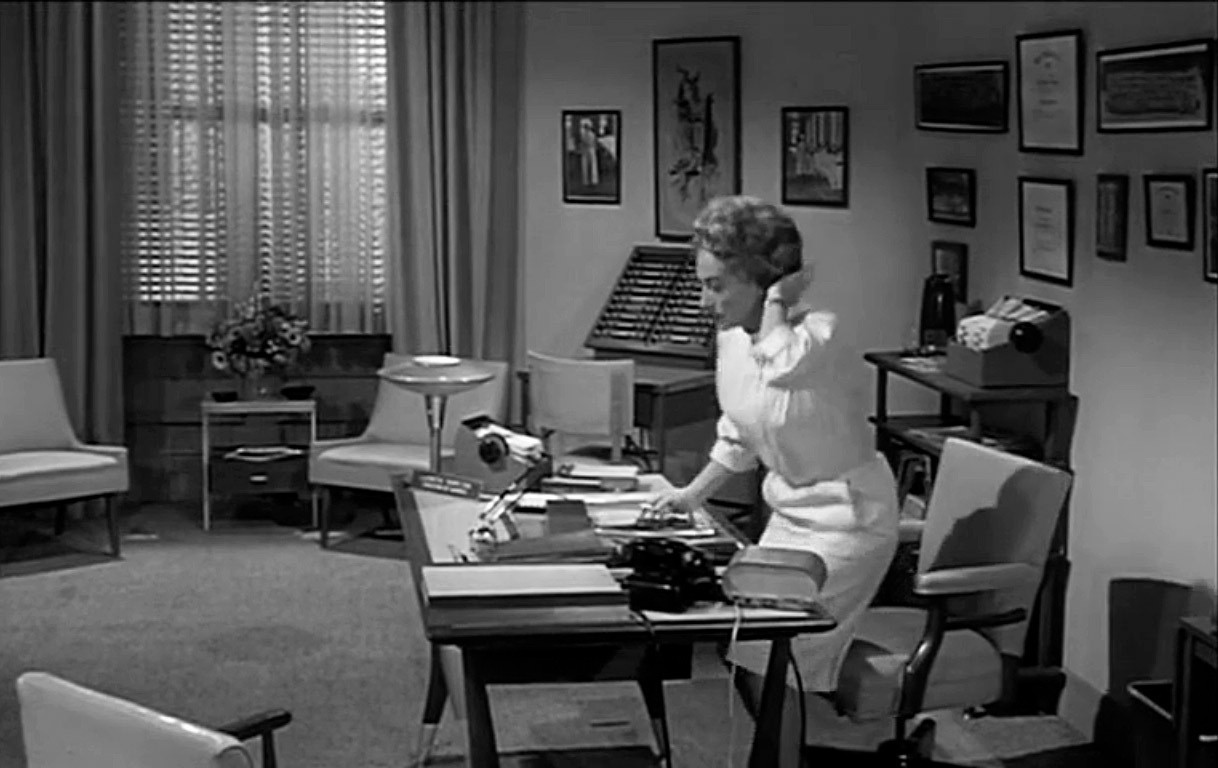Debunking Diane McBain's Allegation
That Joan Crawford Had McBain's Scenes Deleted From "The Caretakers"
Did Joan Crawford have Diane McBain's scenes cut from the film "The Caretakers"? The answer is: No.
On August 21st, 1963, "The Caretakers was theatrically released in America. The film starred Joan Crawford, Robert Stack, Polly Bergen, Janis Paige, Diane McBain and Herbert Marshall. The film, which was based on the 1959 novel of the same name by Dariel Telfer, was produced, directed and written by Hall Bartlett and Jerry Paris. The story centers around the patients and staff of Canterbury Institute, a mental health facility.
Joan Crawford portrayed the character "Lucretia Terry," the facility's head nurse. Diane McBain portrayed the character "Alison Horne" ("Althea Horne" in the novel), a young nurse who is the love interest of new doctor "Dr. Donovan MacLeod," portrayed by Robert Stack.
In the novel, and the film's original screenplay, Lucretia Terry has a secret crush on Dr. MacLeod. Ashamed and confused of her feelings, Lucretia acts out against Dr. MacLeod by strongly challenging his proposed new changes for patient care at Canterbury. These actions create a pseudo "love triangle" between Lucretia, Alison and Dr. MacLeod, with Alison ultimately confronting Lucretia with her belief that Lucretia is in love with Dr. MacLeod.
During the film's editing process, Hall Bartlett decided to entirely remove this love triangle subplot. In removing this subplot, several key scenes involving Joan Crawford and Diane McBain were removed. Because the primary purpose of McBain's character was to enhance this subplot, only a few scenes involving McBain's character remains in the finished product. Likewise, Crawford's character is reduced to being a one dimensional professional advisory to Stack's character. The reason why Bartlett removed this subplot is unknown.
In January 1963, Joan Crawford watched a screening of the film for the first time and immediately noticed the removed scenes and subplot.
On January 15th, Crawford wrote Bartlett a letter berating him for removing this subplot. In the letter, Crawford says to Bartlett:
"There is no rhyme nor reason for my performance in "The Caretakers," since you have eliminated my scenes with McBain, and all cuts and looks that I played subtly to indicate my attraction for Stack. Cutting the scene where McBain accuses me of being in love with Stack was drastic beyond belief; and my one big scene of trying to sell Herbert Marshall on my old-fashioned ideas was the crux of my performance. Anyone could have played my part as it stands now. I'm heartsick beyond belief."
When one watches "The Caretakers" today, the attraction Crawford's character is supposed to have towards Stack's character is still noticeable in a few remaining scenes. For instance, when Crawford's character is telephoned and asked by the head of the facility (Herbert Marshall) to come meet with him and Stack's character, Crawford immediately primps her hair. Likewise, following Crawford's "Judo class" scene, Stack's character walks into the gymnasium and Crawford's confident stride towards the exit immediately changes to apprehension and nervousness when she sees Stack approaching.
Robert Stack, Diane McBain and Joan Crawford in "The Caretakers."
In 2022, McBain shared this story again in a Fox news article. This prompted this Webmaster to contact Diane McBain regarding her allegations that Joan Crawford was a "producer" or had a financial interest in "The Caretakers." Having researched this film, I knew this information was not accurate and I wanted to ask Miss McBain where she had obtained that information. Additionally, I wanted to share with Miss McBain the January 15th, 1963 letter from Crawford to Hall Bartlett whereby Crawford expressed her own disapproval and disappointment in the deleted scenes and subplot.
In Miss McBain's communications with me, she admitted that she did not actually know for a fact that Crawford was a producer on the film, and that it was merely her assumption. Likewise, Miss McBain admitted that she had simply assumed that her scenes were deleted at Crawford's request.
In regard to her allegations and Crawford's letter to Bartlett, McBain stated to me:
"I never really knew that it was true Crawford did what I thought she did...Oh well, my memoir is finished and out since 2014, so the damage is done."
Fortunately, Miss McBain was honest in her admittance that she never knew that her allegations were fact. I would like to note that throughout my communication with Miss McBain that she was very polite. Additionally, she was nice enough to sign the below "The Caretakers" publicity photo to me for sending her the abovementioned information and giving her some peace of mind regarding the truth of her deleted scenes.
Diane McBain alleging Joan Crawford had her scenes cut from "The Caretakers" on the "Skip E. Lowe Show" and during a 2001 film panel discussion.
Upon seeing "The Caretakers," Diane McBain assumed the majority of her scenes were cut from the film at Crawford's request. McBain based this assumption on her theory that Crawford did not like her, and that Crawford had a financial interest in the film as a producer. This, too, was an incorrect assumption on McBain's part, being that Crawford held no financial interest in "The Caretakers" beyond her position as a featured actress in the film.
Despite McBain only assuming Crawford may have requested that her scenes deleted, she repeatedly stated in interviews over the course of several decades that her scenes were cut due to Crawford. McBain also documented this allegation in her 2014 autobiography, "Famous Enough."
Crawford and Polly Bergen in a deleted scene whereby Joan's character uses her Judo abilities to ward off an attack by Bergen's character.
In addition to the deleted subplot scenes, at least one other scene of Crawford with Polly Bergen was deleted. This scene involved Bergen's character attacking Crawford's character with a hairbrush and Crawford fending off Bergen's attack using the Judo techniques that she had demonstrated in the earlier "Judo class" scene. The removal of so many of Crawford's scenes from the film, and particularly her January 1963 letter to Bartlett, demonstrate that Crawford had no actual control over the film nor its editing.
The abovementioned scenes whereby the subplot of Crawford's character's attraction to Stack's character is still noticeable in the final film.
